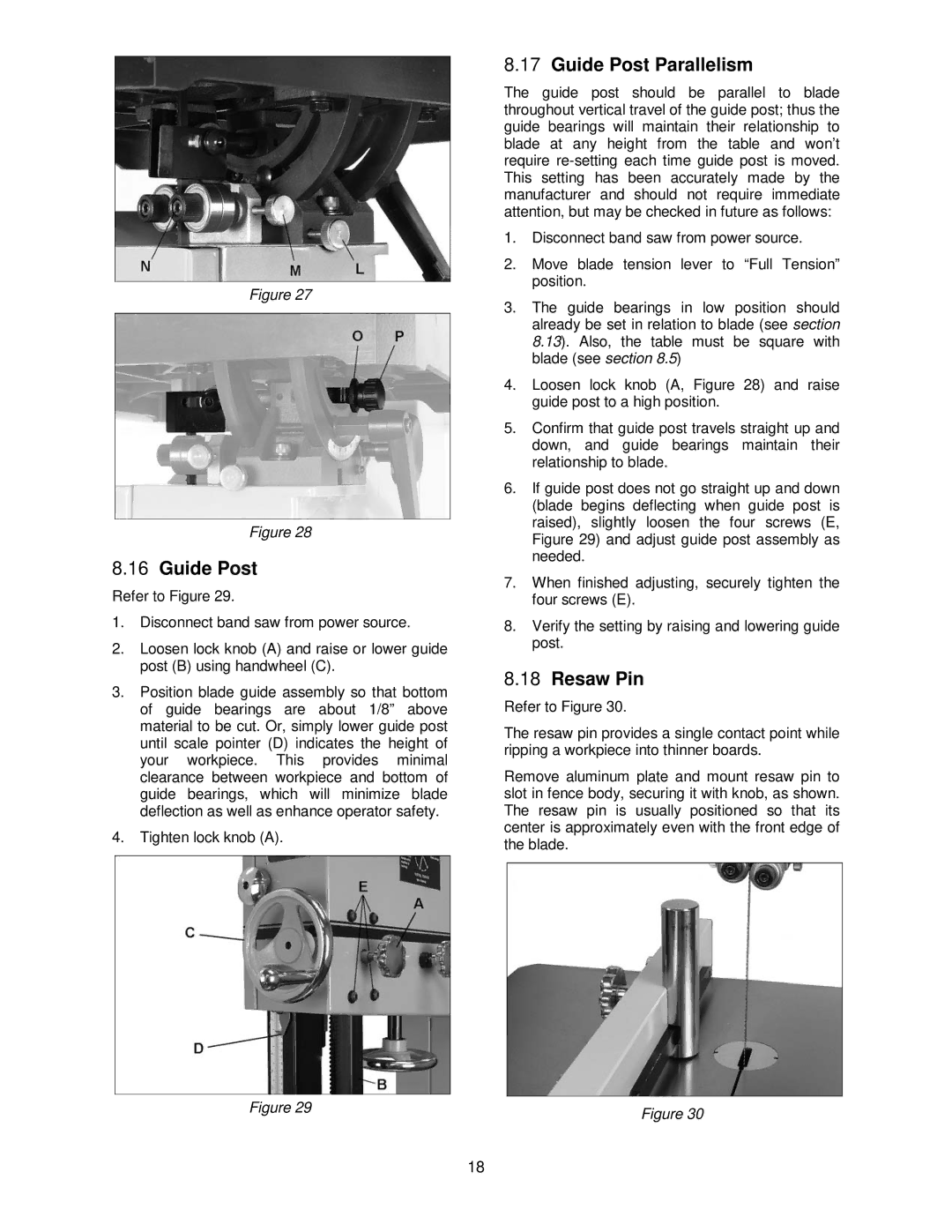
Figure 27
Figure 28
8.16Guide Post
Refer to Figure 29.
1.Disconnect band saw from power source.
2.Loosen lock knob (A) and raise or lower guide post (B) using handwheel (C).
3.Position blade guide assembly so that bottom of guide bearings are about 1/8” above material to be cut. Or, simply lower guide post until scale pointer (D) indicates the height of your workpiece. This provides minimal clearance between workpiece and bottom of guide bearings, which will minimize blade deflection as well as enhance operator safety.
4.Tighten lock knob (A).
Figure 29
8.17Guide Post Parallelism
The guide post should be parallel to blade throughout vertical travel of the guide post; thus the guide bearings will maintain their relationship to blade at any height from the table and won’t require
1.Disconnect band saw from power source.
2.Move blade tension lever to “Full Tension” position.
3.The guide bearings in low position should already be set in relation to blade (see section 8.13). Also, the table must be square with blade (see section 8.5)
4.Loosen lock knob (A, Figure 28) and raise guide post to a high position.
5.Confirm that guide post travels straight up and down, and guide bearings maintain their relationship to blade.
6.If guide post does not go straight up and down (blade begins deflecting when guide post is raised), slightly loosen the four screws (E, Figure 29) and adjust guide post assembly as needed.
7.When finished adjusting, securely tighten the four screws (E).
8.Verify the setting by raising and lowering guide post.
8.18Resaw Pin
Refer to Figure 30.
The resaw pin provides a single contact point while ripping a workpiece into thinner boards.
Remove aluminum plate and mount resaw pin to slot in fence body, securing it with knob, as shown. The resaw pin is usually positioned so that its center is approximately even with the front edge of the blade.
Figure 30
18
